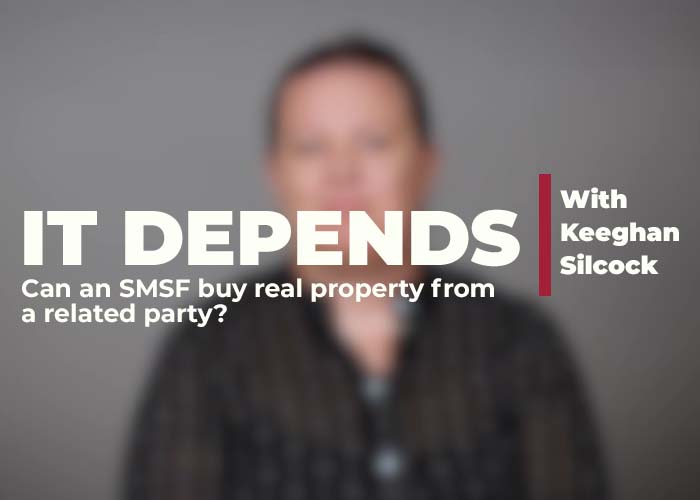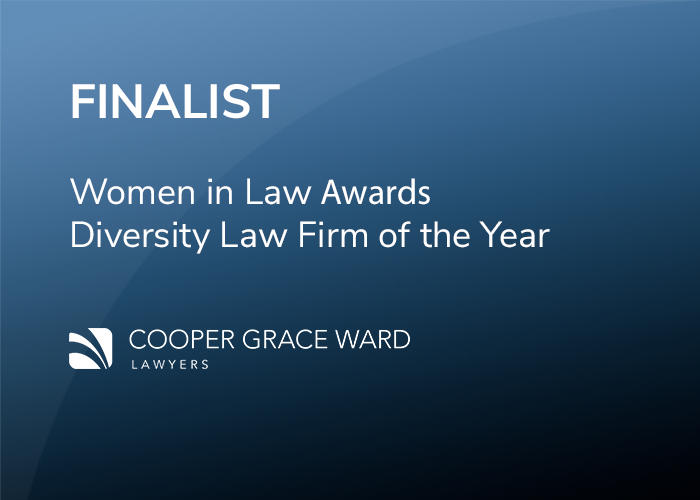In this edition of It depends, senior associate Keeghan Silcock discusses whether an SMSF can buy real property from a related party.
Video transcript
Hi, my name is Keeghan and welcome to another edition of It Depends.
Today I’ll be talking about whether your SMSF can buy a real property from a related party.
It depends.
The first important question to ask is whether the real property constitutes business real property. This is because there is a prohibition from an SMSF purchasing assets from related parties. The one exception in this case is that if the property is business real property, then it can be acquired by the SMSF. For the property to be business real property, the land and the buildings need to be wholly and exclusively used in a business. One issue that we see some clients falling foul of is where the activities that are carried on on the land are not sufficient to amount to a business. For example, where the entity which owns the property is leasing the buildings. So, potentially residential apartments to third parties, they might consider that that is a leasing enterprise, but that is a particularly difficult test to satisfy to the ATO.’s satisfaction. For the entity to be carrying on a leasing business, there needs to be really extensive operations of a leasing nature. It’s usually not sufficient for that entity to just be leasing that one property, for example. So that’s the first test, is whether the property is business, real property.
How will the SMSF fund the purchase?
If we’re able to satisfy that test, so for example where the property is being used in a normal business. So, hardware or some other business of the entity that’s using the land, then we need to look at how the purchase price for that property is paid by the fund to the related entity. What we need to do is we need to be paying market value consideration from the fund as the buyer to the related entity as the seller of that property. There needs to be appropriate evidence of market value. So, it needs to be within three months of the transaction occurring. So, it’s nice and up to date, which really takes into account the true characteristics of the property, whether it’s leased all of that. The consideration for the property needs to be paid on settlement, just as if it was a normal transaction. There are a couple of things that we can do to pay for that consideration that we might not otherwise be able to do in another structure. So, one option that we see clients use is having some or all of the purchase price treated as effectively in specie contribution by members to the super fund. So effectively they’re making a contribution to the fund and the fund then gets to set off some of the purchase price that would be payable to the related entity for the property. Another option that the clients can look at is a limited recourse borrowing arrangement, so that the fund could potentially borrow from, a financier, related party potentially, to fund some of the purchase price that’s payable for the property.
What are the duty and tax consequences of the transfer?
So, the next two big questions that they need to consider, the clients need to consider before proceeding is number one, duty, and then number two, tax. So, even though we’re doing a transaction between related parties, we still have to look at duty and tax in a completely normal sense, as if this were occurring between third parties. In terms of duty, this really depends on the state and territory in which the property is located. There may be an exemption or concession available, but the starting point is that duty would apply at normal, rates. If we’re in Queensland, if the property is in Queensland, one option may be to look at whether trust cloning is available. And that option may be available where the property’s currently sitting in a trust and we can transfer the property potentially to the fund without duty in Queensland, using a trust cloning strategy. So next then we need to look at tax, including the CGT and GST consequences and whether that can be appropriately managed so that the transaction is still worthwhile for the client.
If you’d like to get in touch, about a proposed purchase by an SMSF of business real property, or you have any questions about this, please feel free to get in touch with a member of our team.





